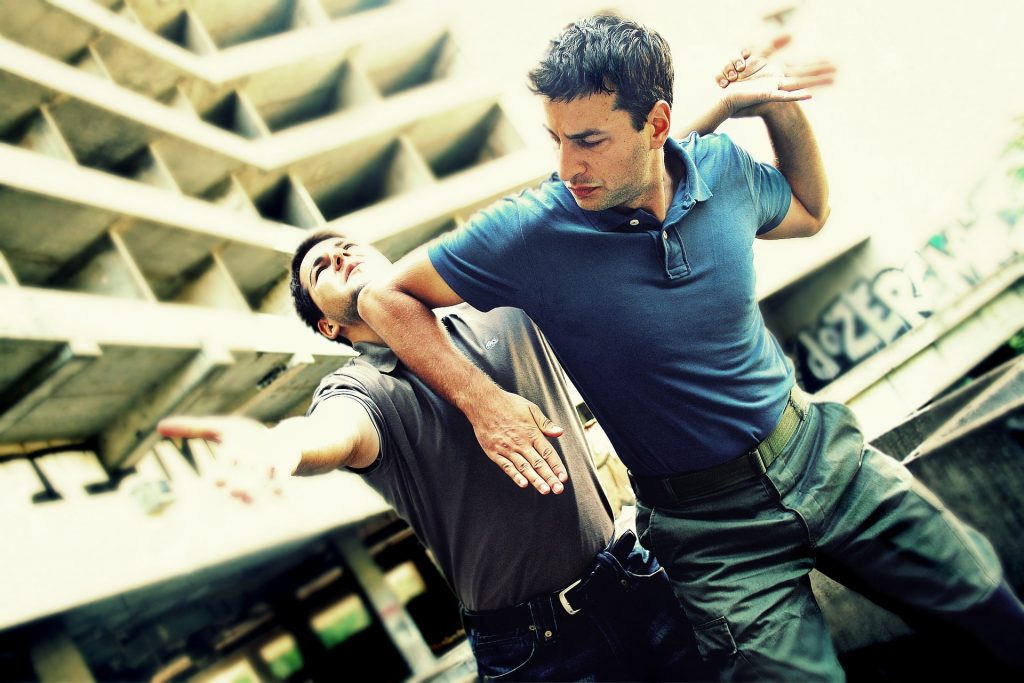In NSW, the law recognises that a person can protect themselves when they are being physically attacked or are faced with a threat of physical violence. However, the extent to which violence can be used in ‘self-defence’ depends on the circumstances and the extent of the threat faced.
When can a person act in self-defence?
Under section 418 of the Crimes Act 1900, a person is not criminally responsible for an offence if the person carries out the offence in self-defence.
A person carries out an offence in self-defence if the person believes their actions are necessary
- To defend themselves or another person;
- To prevent or end the unlawful deprivation of liberty;
- To protect property;
- To prevent criminal trespass to land or premises.
In addition, the conduct must be a reasonable response to the circumstances as the person perceives them.
What will the Court consider?
There are two questions that must be considered by a court when self-defence is raised:
- Is there is a reasonable possibility that the accused believed that their conduct was necessary in order to defend themselves; and (if the answer to this question is yes)
- Is there also a reasonable possibility that the accused’s actions were a reasonable response to the circumstances as they perceived them?
The first question is determined by considering the personal characteristics of the accused and the situation as the accused perceived it at the time: R v Katarzynski [2002] NSWSC 613. In other terms, this is an entirely subjective assessment. Therefore, matters such as the age of the accused, their gender, or the state of his or her health may be considered by the court.
The second question is determined by an entirely objective assessment of the proportionality of the accused’s response. It is important to note that that accused need not have had reasonable grounds for their belief that it was necessary to act in the way they did in order to defend themselves, it is sufficient if they genuinely held that belief
The onus of proof
In any criminal proceedings in self-defence is raised, the prosecution has the onus of proving, beyond reasonable doubt, that the person did not carry out the conduct in self-defence.
If the possibility that the offence was committed in self-defence cannot be excluded, the accused must be found not guilty.
If a person raises self-defence, they do not have to give evidence before the court: Colosimo v DPP, however, other evidence must support self-defence being raised: Mencarious v R.
Defence of property
If a person uses force that involves the intentional or reckless infliction of death to protect property or to prevent criminal trespass, per section 420 the defence of self-defence is not available.
Excessive force
Per section 421, if a person uses force that causes death and that conduct is not a reasonable response in the circumstances, but the person believes the conduct is necessary to defend themselves or another person; or to prevent the unlawful deprivation of their liberty, they can be found not criminally responsible for murder but criminally responsible for manslaughter.
Self-defence and murder
When a person is charged with murder, a conviction for manslaughter is ‘open’ as an alternative. What that means is that if the prosecution proves beyond a reasonable doubt that what the accused did was not a reasonable response in the circumstances, then the accused can be found not guilty of murder but guilty of manslaughter. Alternatively, if it is found that the prosecution has failed to prove beyond a reasonable doubt that the accused was acting in self-defence, the accused may be found not guilty of murder and not guilty of manslaughter.
Key Takeaways
- In NSW, self-defence is legally recognized under specific conditions, such as protecting oneself, others, property, or preventing criminal trespass.
- Self-defence claims must show the accused believed their actions were necessary and that their response was reasonable to the perceived circumstances.
- The court considers the accused's personal characteristics and the proportionality of their response in self-defence cases.
- The prosecution must disprove self-defence beyond reasonable doubt for a conviction.
- Voluntary intoxication affects the assessment of belief in the necessity of conduct but not the reasonableness of the response.
Intoxication
If the accused was voluntarily intoxicated at the time of the offence, their intoxication must be taken into account in assessing whether they believed the conduct was necessary in response to the circumstances as they perceived them: R v Katarzynski [2002] NSWSC 613.
However, intoxication is not to be taken into account in determining whether the accused’s response to the threat was reasonable: R v Katarzynski [2002] NSWSC 613.
If you or someone you know needs legal advice or representation for a criminal law matter, contact the team at Hamilton Janke Lawyers 24/7 by calling 4038 1666.
Written By

James Janke
James Janke is founding partner at Hamilton Janke Lawyers, and has more then decade of experience as a Criminal Defence Lawyer. Admitted to both the Supreme Court of New South Wales and High Court of Australia




